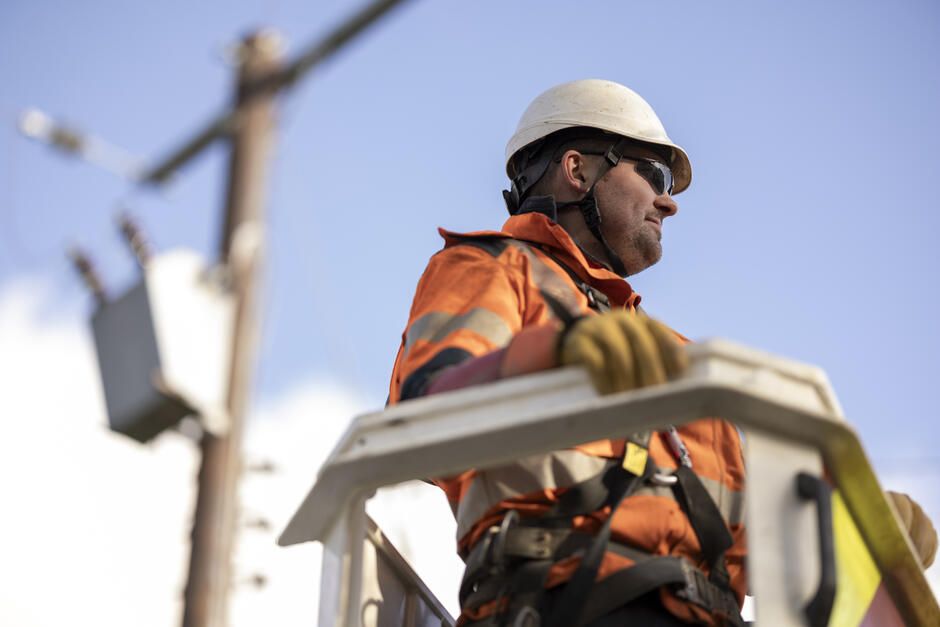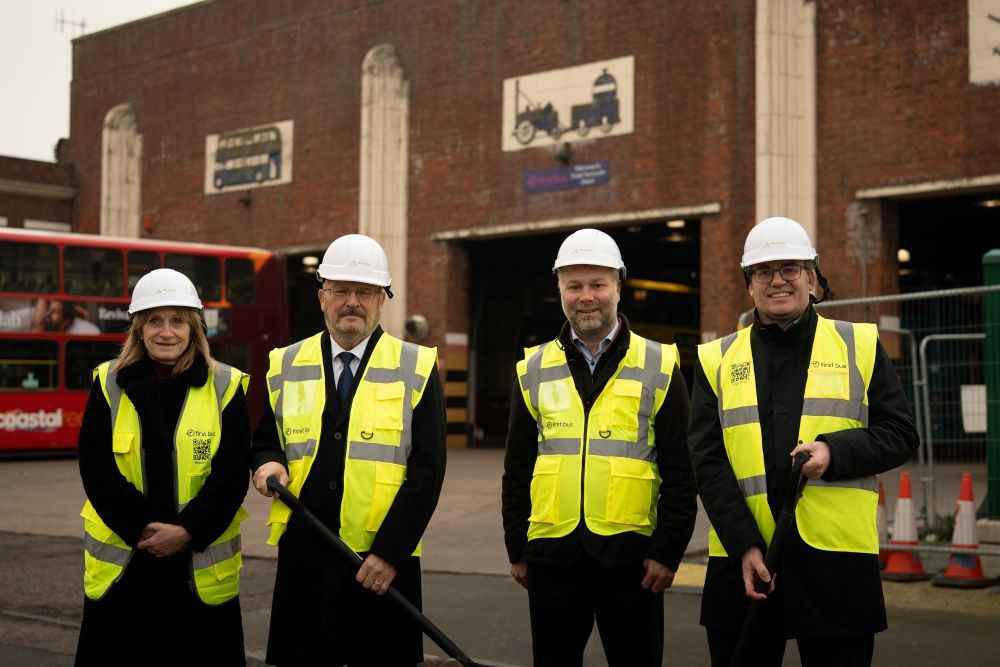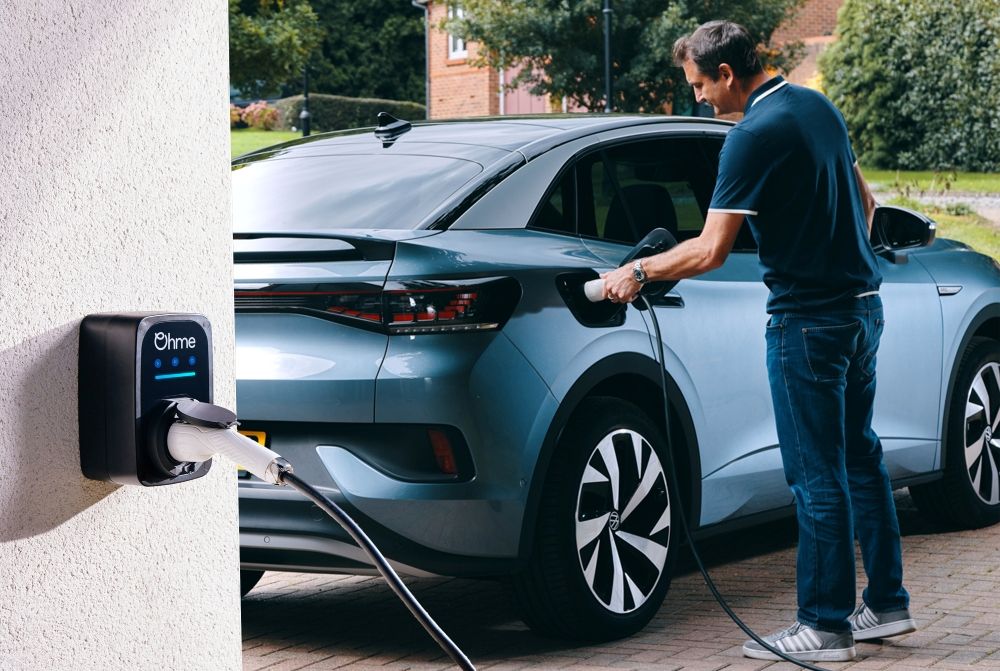Professionals from across the transport, energy and automotive sectors have hit back at speculation that the Government will water down some of their key green policies – including delaying the ban on the sales of new petrol and diesel cars.
Prime Minister Rishi Sunak is expected to address the nation at 4.30pm and possibly announce a delay to the 2030 ban on petrol and diesel cars to 2035, according to reports.
Toddington Harper from electric forecourt firm GRIDSERVE said the speed and scale of the climate crisis meant it would be “a mistake to weaken the key net zero policies”.
He said: The climate emergency is accelerating before our eyes with increasing flooding, wildfires and droughts, and this new reality means that we all need to be moving faster to prevent further devastation to our planet and all life that inhabits it. Climate change is not waiting for us to move to net zero transport in our own timeframes. It’s evident that the climate emergency is getting worse and immediate action is required to protect lives and the livelihoods of future generations.
“It’s also not economically astute to weaken net zero policies. The UK has the opportunity to be a leader worldwide with the green growth potential far outweighing anything that the dying fossil fuel industry presents at this moment. Governments worldwide are seeing the potential and investing heavily. Our strong and world-leading targets allowed for strong private investment in green growth in the UK. However, any weakening of the 2030 ban adversely affects private investment, which will prove more costly for our country in future. The UK needs clear direction towards net zero and to overcome any challenges with solutions, not to cast uncertainty and waver on promises when things get tough.”
The Society of Motor Manufacturers and Traders (SMMT) said the move created “confusion and uncertainty”.
Mike Hawes, SMMT Chief Executive, said: “The automotive industry has and continues to invest billions in new electric vehicles as the decarbonisation of road transport is essential if net zero is to be delivered. Government has played a key part in bringing some of that investment to the UK, and Britain can – and should – be a leader in zero emission mobility both as a manufacturer and market.
“To make this a reality, however, consumers must want to make the switch, which requires from Government a clear, consistent message, attractive incentives and charging infrastructure that gives confidence rather than anxiety. Confusion and uncertainty will only hold them back.”
The Association for Renewable Energy and Clean Technology has also said the decision to delay the ban on the sales of new petrol and diesel cars as well as the phasing out of gas boilers will only mean more dependence on expensive fossil fuels.
It would also risk undermining the investments that have gone into renewable technologies, following the Government’s previous commitment to have strong markets in place by the 2030s.
The REA reiterates that weakening green policies will make the energy transition more expensive and the UK cannot afford to abandon existing promises if the Prime Minister is serious about energy security and ensuring an affordable energy transition.
Dr Nina Skorupska CBE, Chief Executive of the REA (Association for Renewable Energy and Clean Technology) said: “Any rolling back on existing net zero commitments is not the smart economic choice for the country. It is short term policy making that guarantees more expensive bills for us all in the future.
“If confirmed, delays to both the ban on the sales of new petrol and diesel cars and the phasing out of gas boilers will extend the countries reliance on expensive fossil fuels. It also risks undermining the millions of pounds of investments that have already been made based on the understanding that Government is committed to seeing strong markets for EVs, heat pumps, biomass boilers, and other renewable technologies, in place by the 2030s. A reversal on these targets damages the opportunities these sectors are set to provide to the UK, both in terms of growth and jobs, while making the overall energy transition more expensive.
“Last year, the Net Zero Review was clear. The energy transition is the ‘economic opportunity of the 21st century’. Other countries are pursuing this at pace by putting in place generous support packages, as demonstrated by US Inflation Reduction Act. The UK cannot afford to look like it is exiting this race. If the Prime Minister is serious about energy security and ensuring an affordable energy transition, then he must not abandon these existing promises.”
Matthew Adams, Transport Policy Manager at the REA, added: “The news that the PM is likely to row back on the 2030 end of sale of ICE vehicles target will push this country back by 10 years, impacting on the motor manufacturing sector, and ev charging sector, making us less competitive and less attractive for investment. The REA (RECHARGE UK) will continue to scrutinise Government and provide information to all political parties on how to support the EV sector. As the secretariat of the EV APPG we will ensure all parties are well equipped to scrutinise this economically and environmentally damaging decision. “
Quentin Willson, Founder of FairCharge, added: “If the Govt moves the 2030 deadline they risk billions in investment and thousands of jobs. Today car makers, including Ford, have warned that they need policy certainty for future investment decisions in the U.K. Moving this date for short term electoral gain will risk both the entire energy transition and the UK’s international investment credibility. Sunak must ignore the siren calls of a coven of fossil fuel supporting back benchers and listen to the global investment community instead.”
Robert Llewellyn, Founder of the Fully Charged SHOW, commented: “What remains of the UK car industry, as evidenced by this week’s statement from the SMMT demonstrated, is unified behind the need to accelerate the battery electric vehicle market in the UK. Any dilution of the ZEV mandate will have the opposite effect on BEV adoption in the UK and it is little wonder that businesses like Ford, that rely on long-term stability, are frustrated. The UK cannot exempt itself from this global megatrend, and we are in danger of being on the outside looking in as all of our neighbours profit from the electric revolution.”
Gill Nowell, Head of EV Communications, ElectriX:
”The prospect of rolling back the 2030 ban on new sales of petrol and diesel cars risks the UK’s position as a world leader on electric vehicles. We’re on the cusp of making real headway in our transition to net zero tailpipe emissions for road transport and this is key to improved air quality and health outcomes. Both industry and the driving community need certainty; businesses are investing heavily in electric car production, EV charging infrastructure, skills and training, and the supply chain.
”Now is the time to double down on our efforts, rather than steering away from our commitment to decarbonising road transport. Electric cars have lower running costs, are good for the planet, and good for our health. Public appetite for battery electric cars is still growing with 1 in 5 new cars registered in August being battery electric. Any movement on the 2030 date risks losing both industry and consumer buy-in for electric vehicles, and would be a sad day for UK plc.”
In a statement, ChargeUK – a trade group which represents the UK’s Charging Infrastructure Industry, said: ”For many years the UK has been a leader in the transition to the green economy of the future. Government policies have attracted investment to the UK and created well paid, high quality jobs.
”Members of ChargeUK have committed over £6 billion to roll out EV infrastructure in all parts of the UK at an unprecedented rate, turning on a new public charging point every 20 minutes, creating good, sustainable jobs, supporting the switch to EVs and thereby reducing emissions and improving air quality for all.
”This has been made possible by a clear commitment from the UK government to decarbonise our economy, with the 2030 phase out date for new petrol and diesel vehicles 2030 acting as an essential catalyst. In his first speech as Prime Minister, Rishi Sunak said “I will place economic stability and confidence at the heart of this government’s agenda”. Today’s extremely worrying news is not consistent with economic stability or confidence. It will compromise the entire industry, and place jobs and consumer and investor confidence at risk.
”More importantly, government will penalise individual drivers who are doing the right thing. More and more people are making the transition to electric vehicles, as they have been encouraged to do. They are entitled to expect government to keep its promises and continue to support the roll out of charging infrastructure across the UK.
”ChargeUK calls on the Prime Minister to confirm that the UK government remains committed to the 2030 phase out date for new petrol and diesel vehicles and to a strong ZEV mandate.”
Melanie Shufflebotham, COO and co-founder of Zapmap, said: “The Government should be looking to the future, not the past, so any suggestion of delaying the petrol and diesel ban would be foolish and irresponsible.
“The climate emergency is already here but Ministers continually fail to recognise the urgency of the situation.
“The growing popularity of electric vehicles shows that drivers are keen to play their part in the transition to cleaner transport, which is a critical part of our journey towards net zero. Any delay increases the risk that we’ll miss those targets.
“The number of public charging points is rapidly expanding – we’re approaching the 50,000 mark, with growth of more than 40 per cent in the last year alone – so the direction of travel is clear.
“The Government must stick to its promises and start thinking long-term rather than short-term.”
In a statement, car maker Ford said: ”Three years ago the government announced the UK’s transition to electric new car and van sales from 2030. The auto industry is investing to meet that challenge.
”Ford has announced a global $50 billion commitment to electrification, launching nine electric vehicles by 2025. The range is supported by £430 million invested in Ford’s UK development and manufacturing facilities, with further funding planned for the 2030 timeframe.
”This is the biggest industry transformation in over a century and the UK 2030 target is a vital catalyst to accelerate Ford into a cleaner future. Our business needs three things from the UK government: ambition, commitment and consistency. A relaxation of 2030 would undermine all three. We need the policy focus trained on bolstering the EV market in the short term and supporting consumers while headwinds are strong: infrastructure remains immature, tariffs loom and cost-of-living is high.”
At the time of writing the Prime Minister has reportedly summoned his Cabinet to an emergency meeting on net zero.
Further industry reaction to follow.
Image courtesy of Shutterstock.











